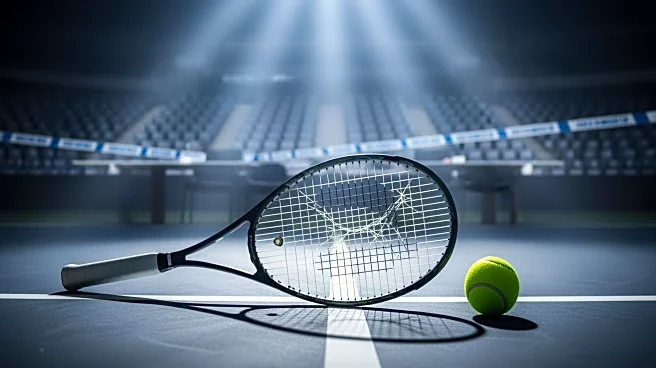What's Happening?
Elena Rybakina has been crowned the new WTA Finals champion after defeating Aryna Sabalenka. Rybakina's victory was marked by an undefeated run throughout the tournament. However, the focus shifted to Sabalenka's reaction post-match. According to reports,
Sabalenka was visibly upset, sitting in her coaching box surrounded by her team. She reportedly 'melted her racket' in frustration, a reaction reminiscent of her behavior after the French Open final. Despite the loss, Sabalenka's performance in the tournament, including a win over Coco Gauff, was praised by tennis legend Chris Evert.
Why It's Important?
The outcome of the WTA Finals highlights the competitive nature of women's tennis and the emotional toll it can take on players. Sabalenka, a four-time Grand Slam champion, has been a dominant force on the WTA Tour, yet key titles like the WTA Finals continue to elude her. This underscores the challenges even top athletes face in achieving consistent success across different tournaments. Rybakina's victory, on the other hand, solidifies her status as a formidable player in women's tennis, potentially shifting dynamics in future competitions.
What's Next?
For Aryna Sabalenka, the focus will likely be on regrouping and preparing for upcoming tournaments. Her team will need to address the emotional and strategic aspects of her game to help her secure the titles that have so far been out of reach. For Elena Rybakina, this victory could serve as a springboard for further success, boosting her confidence and positioning her as a key contender in future Grand Slam events. The tennis community will be watching closely to see how these players build on their current form.
Beyond the Headlines
Sabalenka's reaction highlights the intense pressure and emotional strain faced by professional athletes. It raises questions about the support systems in place for athletes dealing with high-stakes competition and the psychological aspects of sports performance. This incident may prompt discussions on how players can be better supported in managing stress and expectations, potentially influencing coaching and support strategies in the sport.
















